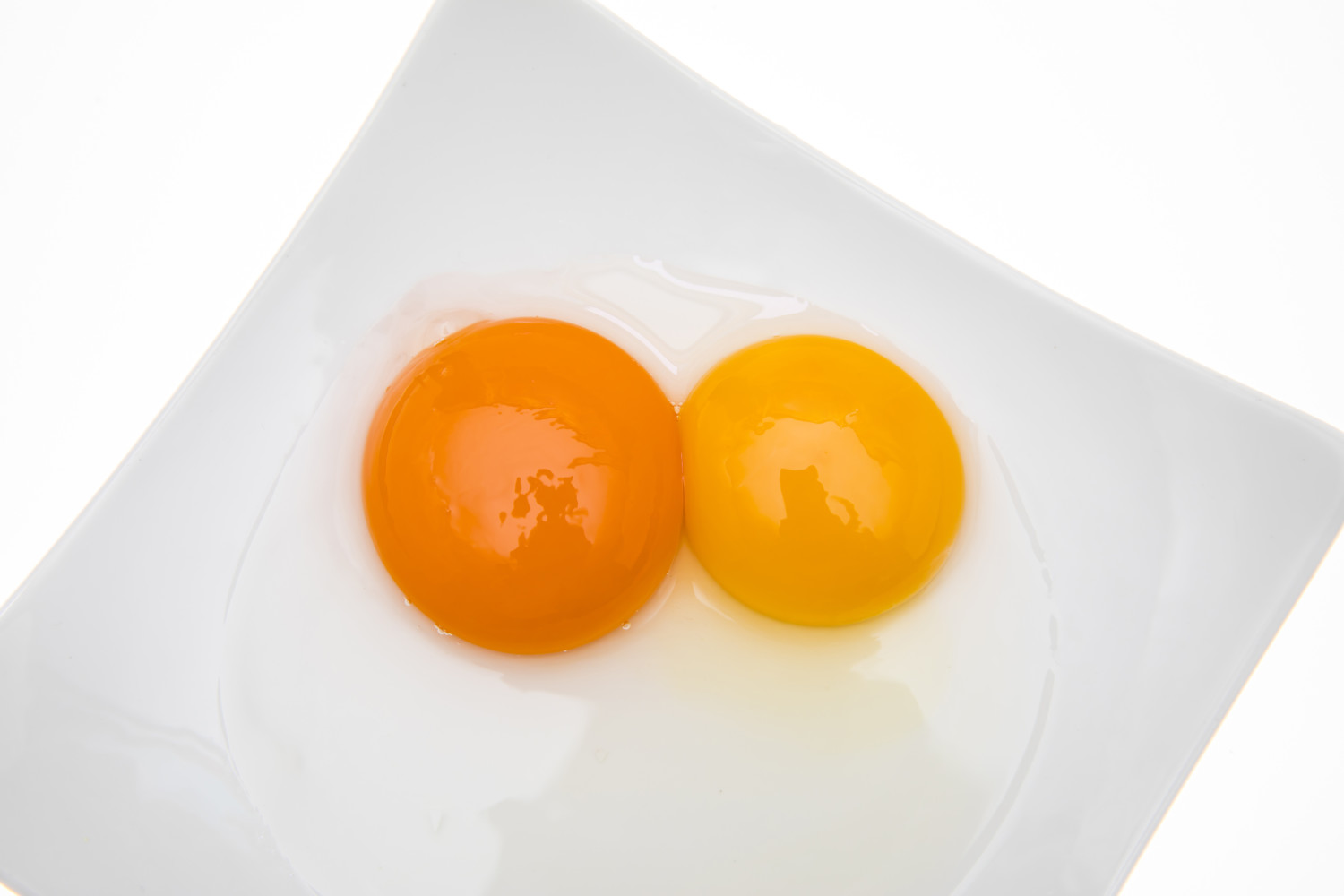Eggs are a popular addition to any breakfast plate, and they are a staple for most kitchens, whether in a bakery, restaurant or a home chef’s stockpile. But when deciding between duck eggs vs. chicken eggs, is one a better choice than the other?
Learning about the nutritional aspects, benefits and other attributes can help you choose the best type of egg for cooking, baking and eating in your own kitchen.
The Differences Between Duck Eggs Vs. Chicken Eggs
Duck eggs and chicken eggs don’t look much different, but some physical characteristics can help you distinguish between the two. For starters, duck eggs tend to be notably bigger than chicken eggs. In fact, they can be as much as 50-100% larger than an average-sized chicken egg, making a duck egg equal to one-and-a-half or two chicken eggs in volume.
You can’t always differentiate between duck and chicken eggs by the color alone. Although most chicken eggs are white, cream or brown, they can also be shades of blue, green and even pink. Duck eggs range from white, gray or brown to green, speckled and almost black. For either bird, the egg color is related to the breed and doesn’t affect the flavor or nutrients of the eggs.
On the inside, duck and chicken eggs look different, as well. Chicken egg yolks are typically soft yellow or bright yellow, while duck eggs are a deeper, darker golden orange color. And since duck eggs are larger than chicken eggs, the yolks are also more sizable.

Nutritional Benefit Comparison
Both types of eggs are excellent sources of nutrition. They are comparable in calories, protein and carbohydrates, with duck eggs somewhat higher in fat and cholesterol, primarily due to their larger size.
Duck eggs also have higher amounts of folate, iron and vitamin B12, containing as much as 168% of the daily recommended value for vitamin B12. Chicken eggs (specifically the whites) have higher amounts of some proteins believed to have antimicrobial, antioxidant and cancer-inhibiting properties.
Duck Eggs Vs. Chicken Eggs In Cooking And Baking
When determining whether to use duck eggs, chicken eggs or both in your kitchen, several factors should be considered. For instance, since duck eggs have thicker shells, they have a longer shelf life than chicken eggs, but it also makes them more difficult to crack. And since they are larger, they contain more albumen, which is egg white. This provides more structure and higher lift, resulting in especially light and fluffy baked goods such as cakes and pastries.
Duck eggs are richer and have a creamier mouthfeel due to their higher fat content. Whether this is an advantage or a drawback depends on your preference. Some insist that duck eggs are ideal for rich desserts such as custards because of their fatty, creamy nature.
Both eggs tend to taste similar, though they can taste slightly different due to the birds’ diets. Because they have similar yet unique proteins, some people who have an allergy to chicken eggs can tolerate duck eggs without an allergic response. However, it is vital for anyone with an egg allergy to talk to a healthcare provider before trying duck eggs.

Because of the variances in size and fat content, substituting chicken eggs with duck eggs in baking can take some trial and error to achieve the desired results. Duck egg whites have a lower water content than their chicken counterparts, so they are harder to whip. The lower water content also results in rubbery egg whites if duck eggs are boiled too long.
Duck eggs can be challenging to find and they tend to be pricier than chicken eggs. But if you live in a rural area or can find a source — or could raise ducks (and eggs) yourself — you might want to give them a try.
This story originally appeared on Simplemost. Checkout Simplemost for additional stories.


